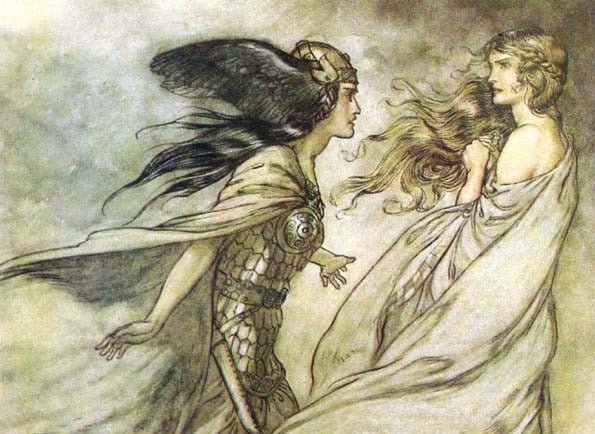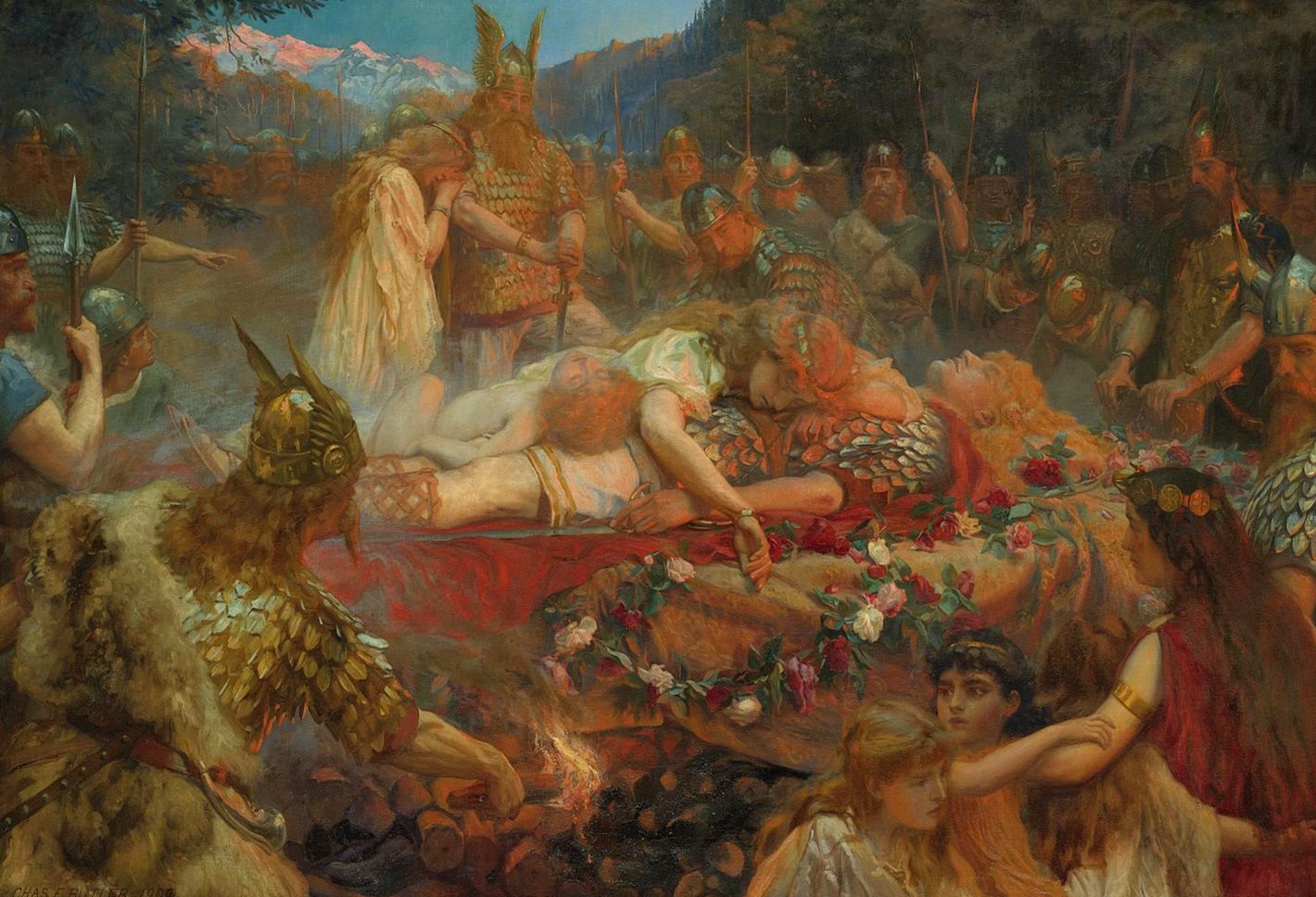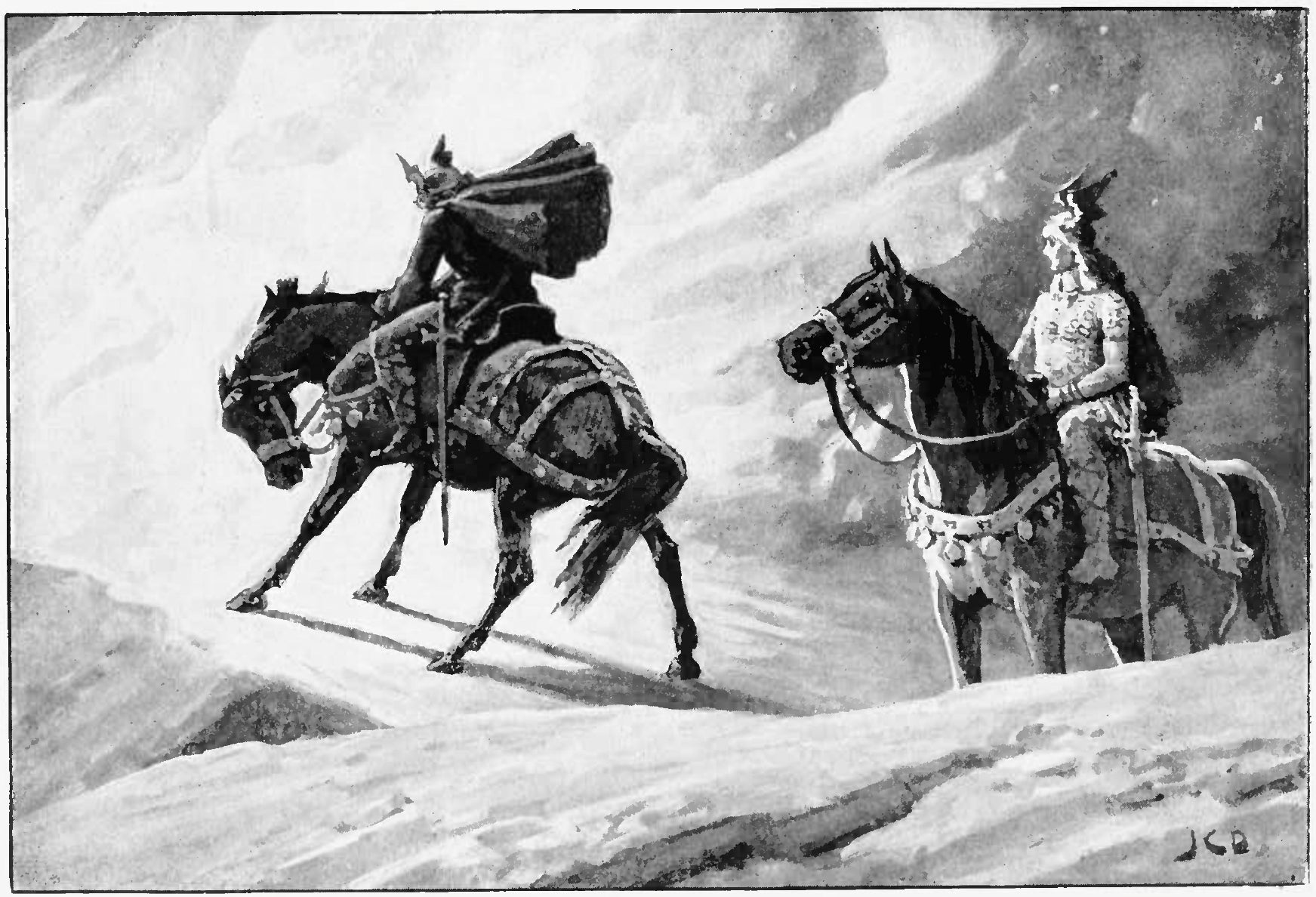An earlier blog post tells how Sigurd, having wooed and won the Valkyrie Brynhild, drank a potion which caused him to forget her, love and marry the princess Gudrun, and help Gudrun’s brother Gunnar win Brynhild’s hand in marriage. Sigurd managed this last by changing himself into Gunnar’s shape and riding through the enchanted wall of fire which Brynhild had sworn her husband must endure. Then he rode away, bidding Brynhild to follow him soon, and resumed his own shape.

Brynhild was sore at heart for Sigurd’s abandonment, but she consoled herself with the thought that she still had a husband bold enough to pass the flames for her love. She came to Gunnar’s father’s court and married him in great splendor. But in the midst of the wedding-feast the enchantment fell from Sigurd’s mind, and he remembered how he had awakened Brynhild, learned from her, loved her, and sworn faith to her. His old love wakened along with his memory.
Gudrun saw the shadow on her husband and wanted to know what dismayed him. At last he told her the whole bitter story, and he gave her Andvari’s cursed ring, which he had given to Brynhild and which Brynhild had given back to him when she thought he was Gunnar. After that Gudrun was as bitterly jealous as Brynhild.

One day when the sister queens went to bathe in the river together, Brynhild insisted on washing herself upstream from Gudrun. She was cleaner, higher, and nobler than Gudrun, she said, for her husband had grown up in honor in his father’s court while Sigurd was a fosterling raised by charity in a stranger’s court—and Gunnar, moreover, had dared the flames for his love.
Gudrun, not to be outdone, marched upstream from Brynhild and cried out that Sigurd had killed the dragon Fafnir, while Gunnar had not even had the courage to win his own wife, having instead gotten Sigurd to brave the flames in his place. When Brynhild protested that the man who lay with her had Gunnar’s body, Gudrun laughed wildly and demanded, “And what did he do with the ring you gave him?” When Brynhild made no answer, Gudrun held Andvaranaut up, flashing in the sun.

Brynhild said no more to her sister-queen. She went home cold and silent. But Gudrun was not done with the quarrel. The next day she asked with feigned sympathy what ailed her sweet sister, and whether she wasn’t pining for a better man than the one she had married.

At that Brynhild’s rage broke out and she swore that Gudrun would pay for stealing Sigurd. She added, truly enough, that Sigurd had had to be drugged into loving Gudrun, whereas he’d loved Brynhild first and freely when he fathered Aslaug. Gudrun, furious in her turn, cried out that at least she’d waited until after her wedding to sleep with her man, rather than bearing a bastard.
Then Brynhild’s anger turned cold. She shut herself away and lay as one dead, refusing food and speech. Her husband Gunnar came to her, begged her to live, and asked what he could do for her. She answered that he had already done too much by tricking her into marrying a coward and a deceiver, she who should have been a shieldmaiden forever and who had consented to marriage only on the condition that her husband should be both valiant and true. With that she attacked him, and she would have killed him with his own weapons if his brother Hogni had not rushed in to his rescue. Together they bound her hand and foot.

Very well, she said, he had deceived her, and now he could hold her captive if he would until she died—not that that time would be long; but she would never again speak to him kindly or act as his queen, and would never again love any man but Sigurd. She screamed her mingled love and hate, and her voice echoed through King Gjuki’s castle, and all the court trembled and wondered what evil would follow.



